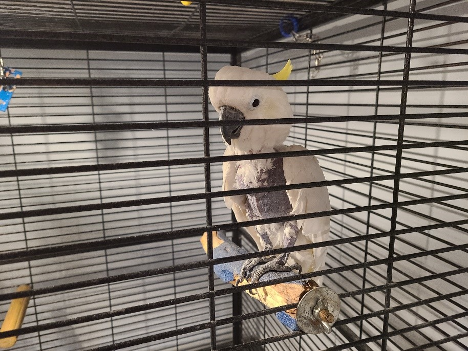PETA Accuses ‘Will Trent’ Trainers of Animal Neglect

People for the Ethical Treatment of Animals (PETA) ran an undercover sting on a Georgia-based animal training firm that services the major studios and networks. Then the activist group filed a Feb. 21 complaint with the U.S. Department of Agriculture alleging violations of the federal Animal Welfare Act, The Hollywood Reporter has learned.
The USDA’s Animal and Plant Health Inspection Service tells THR that it’s reviewing the matter. “APHIS takes all animal welfare-related complaints very seriously,” says a spokesperson.
More from The Hollywood Reporter
The company, Atlanta Film Animals (AFA), disputes PETA’s claims related to a variety of its creatures, from monkeys to cockatoos. It also counters that it has evidence it will share with the federal agency that, in at least one instance, the clandestine operative failed to adequately provide medication to a pair of elderly pigs — which the organization denies.
In a statement provided to THR, the company portrayed PETA’s undertaking as “an ongoing effort to discredit animal professionals who work in TV and film,” adding, “we welcome any licensed animal welfare organization to visit our facility at any time,” and that it’s since contacted both the Georgia Department of Agriculture and the Georgia Department of Natural Resources to request unannounced inspections.
By PETA’s account, its probe — which included surreptitiously recorded audio and video — found that, among other purported issues, AFA didn’t provide dogs with proper bedding or heated housing; intentionally deprived cats and other animals of nutrition as a training tactic; and failed to offer adequate medical treatment to pigs who walked on overgrown hooves.
AFA, which is run out of a 68-acre ranch, said the bedding allegation “is just categorically false unless bedding was removed by the PETA representative,” and insisted that “dogs are brought inside during temperature extremes.” As for nutrition deprivation, that’s “not our policy,” the company claimed, and with regard to the pigs in question, AFA noted they’re under vet care for arthritis and have been prescribed an anti-inflammatory drug. AFA added that its employees witnessed the PETA operative “withholding the prescribed medication” from the pigs.
PETA defended its operative, who worked on site for 17 days between December and January. PETA labeled the suggestion that the individual had nefariously removed missing bedding as “outrageous” and asserted it would’ve only been taken away if soiled. As for the anti-inflammatory drug, PETA insisted its insider never missed a dose he’d been assigned to provide and even at one point notified an AFA supervisor that the medication had run out.
AFA’s credits have included Netflix’s Dog Gone, Max’s Moonshot, CBS’ True Lies and Warner Bros’ The Conjuring: The Devil Made Me Do It. The company’s most steady client is Disney, for which in recent years it’s provided animals for Godmothered, Togo and the live-action Lady and the Tramp.
PETA said that a pair of allegedly malnourished cats were employed for scenes on the ABC procedural Will Trent in December. (The group said its operative was unable to scrutinize prominent Will Trent canine Betty, played by an AFA chihuahua named Belle.) The network didn’t return a request for comment. PETA also contended that dogs left in outdoor kennels when the temperature dropped to unsafe levels had previously been utilized on Universal Pictures’ Strays, released in August 2023.
“In this day and age of CGI, VFX and other 100 percent humane forms of technology, PETA urges the entertainment industry to think hard before hiring Atlanta Film Animals or any other cruel animal supplier,” says PETA senior vp Lisa Lange in a statement.
PETA has done this before. In 2017, the group filed a complaint with the USDA against the industry’s top training firm, California-based Birds & Animals Unlimited — a business partner of AFA — based on explosive claims from a whistleblower who’d secretly gathered evidence of alleged mistreatment while working there. BAU had contended that the assertions were specious and misleading, and the USDA ultimately dinged the company for only a few of the initially raised issues.
Best of The Hollywood Reporter

 Yahoo News
Yahoo News 